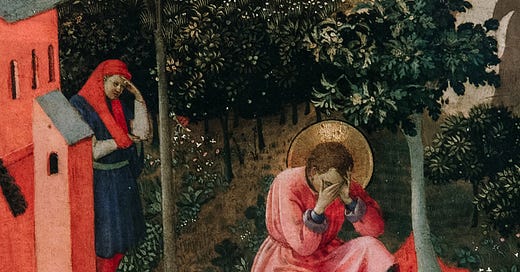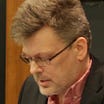The Wreckers, in Augustine’s Day and Ours
Edward Feser examines the perversion of human community in Augustine’s Confessions, and shows that the cure is to re-orient our community to God.
The perversion of authentic human community is a well-known theme of Augustine’s City of God. But it features too in the Confessions, as is brought home on reading Thomas Williams’ excellent new translation. Augustine’s account of his life prior to his conversion is essentially a story of immersion in corrupt forms of community – and of how true community is possible only as a byproduct of seeking something higher than it: communion with God. The perverse social order he describes is reminiscent of our own condition today.
Augustine’s well-known struggle with sins of the flesh is, of course, part of the story. The famous opening lines of Book III recount his arrival at Carthage (“burning, burning, burning, burning,” as T. S. Eliot would add in The Waste Land):
All around me was the noisy bubbling and sizzling of disgraceful loves. I was not in love, but I was in love with love, and in my innermost emptiness I hated myself because I was not emptier still… And so my soul was sick; all covered in sores, it rushed outside itself, eager to scratch its miserable itch with the touch of sensible things. (p. 29).
Eventually he would confine himself to one woman, albeit not in a true marriage. But nevertheless, he writes: “I discovered by my own experience how great a difference there is between the due measure of lawful marriage, which is a covenant for the sake of procreation, and an agreement between lustful lovers who mean to avoid having children” (p. 44).
But disordered sexuality is by no means the only perversion of our social nature into which Augustine had fallen. As is well known, in the story of his youthful theft of some pears, Augustine emphasizes that the pears themselves were of no value to him and that it was the thrill of wrongdoing that attracted him. But there is more to the story:
And yet I would not have done it by myself – this is how I remember my state of mind – I would certainly not have done it by myself. So I also loved the companionship of those with whom I did it… If I had been after only the thrill of committing the evil act, I would not have inflamed the itch of my cupidity by rubbing up against souls who shared my guilt. But since there was no pleasure for me in the pears, the pleasure was in the crime itself, and it was my companionship with fellow sinners that created this pleasure. (p. 27)
In other words, what was attractive in the sin was a shared experience of evildoing, a perverse sense of community in doing what is destructive of community.





